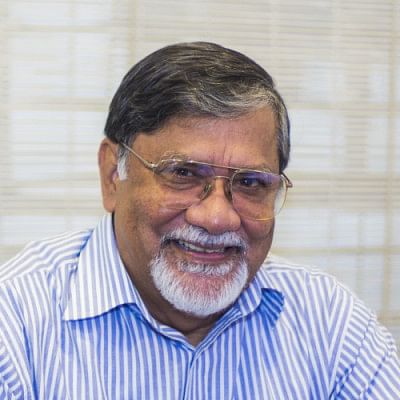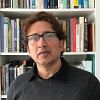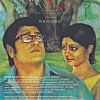Deciphering the student-learner

How does a student become great – a model learner who is driven to reach beyond the scopes of the classroom? Four educators – academic professionals with vast experience in teaching both in Bangladesh and the US – explore what makes a great student-learner in the second part of a series that focuses on some of the most basic and important issues of higher education in Bangladesh. The Daily Star welcomes and encourages any and all thoughts, ideas, and recommendations from our respected readers.

What makes a good student? A definitive answer to this question is difficult largely because demands, attributes, contexts, and expectations change. Nonetheless, some "traditional" constants may be noted.
First, they must WANT to be good students. This does not happen by chance or default. This is driven by "curiosity" – a sincere desire to know and understand the subject being taught, and the larger context within which this is situated. It is the pursuit of personal fulfilment and self-improvement in which they are not simply passive recipients of information, but active participants in developing a critical spirit, interrogating narratives and texts, and learning to be independent thinkers.
Second, good students must be hard-working. It is not the cleverest but the most industrious, dedicated and attentive who will emerge as the best educated. It implies a readiness to make the effort, accept the costs, and undertake the necessary sacrifices (as the Southern spiritual goes, they must "keep their eyes on the prize" and not be distracted). As seductive as it may be to cut corners, be strategically lazy, put technology to devious use, rely on regurgitation, and "game" the system, it is totally counterproductive. One can get degrees, even good grades, but not an education.
Good students must be humble. The very act of seeking an education is an exercise in humility. Thus, enrolling in a university is an admission of one's incompleteness and the need to submit to the rigours of university life to become emotionally fuller and intellectually richer.
They must approach education not in utilitarian or instrumental terms, but as the most consequential and transformational investment in their lives. They must realise that they may lose everything they may have acquired (wealth, beauty, fame, social status, material possessions, etc), but their knowledge will remain their own, and no one ever can touch it, debase it, or confiscate it. It is not a temporary acquisition but a permanent treasure, not a destination but a journey, not a path to wealth and power (though it may help in both) but a value in itself.
Third, good students must be humble. The very act of seeking an education is an exercise in humility. Thus, enrolling in a university is an admission of one's incompleteness and the need to submit to the rigours of university life to become emotionally fuller and intellectually richer.
This attitude is particularly necessary in cultures where sometimes, and unfortunately, there is greater emphasis on being rhetorically aggressive and agile ("argumentative," as Amartya Sen put it), which may often be valorised over diligence or sincerity. This may generate in some students a delusion of superiority, a culture of arrogance, and a sense of entitlement (at times exacerbated by class conceit), which represents the very antithesis of an enlightened worldview.
Finally, good students must bring some moral values, social graces and civic virtues into the classroom. These include honesty and honour, politeness and punctuality, discipline and cleanliness, organisation and preparation, being grateful to instructors and appreciating fellow students, open-mindedness in considering different points of view in a shared and inclusive intellectual space and, above all, a belief that knowledge cannot be derived from myth and magic, but a commitment to the scientific method (i.e. through the laws of logic, evidence, inference, and judgement).
Dr Ahrar Ahmad is professor emeritus at Black Hills State University in the US, and director general of Gyantapas Abdur Razzaq Foundation in Dhaka.
***

Who is a good student?
Performance is generally accepted as a major criterion. But the term is misleading. Take, for example, the "GPA-fivers" scoring A+. Yet, many are downright disappointing; when removed from their rote learning space, they suddenly look like dolts! If I were on a review board, I would randomly select a few hundred scripts of the GPA-fivers and have them reassessed using appropriate rubrics. Why the education ministry and the funding agencies have not done so yet is bewildering.
Identifying the great student for me is straightforward: they are motivated and driven to excel, engage far beyond the classroom, are willing to rise to reasonable challenges, seek help instead of avoiding daunting material, and possess a sense of confidence tinged with humour and humility reflected in their smile and the glint in their eyes. They come to the class prepared, knowing more about a subject than required. For a grade less than expected, they want to know how they could have done better.
They read and process information voraciously, and they animatedly discuss, debate, question, and go beyond the mundane. Most of them learn very well on their own. With a distinct ethic and edge in their work, they are generous – sharing knowledge with their co-learners "willingly." Some of them can unsettle a teacher with a gem of a question from the blues.
But it is also useful to step back and ask about the not-so-good students, many disadvantaged by matters beyond their control. Often, their institutions are not well-endowed, lacking in qualified teachers who use poor teaching methods, do not understand assessment procedures, and relate coercively with students while relying on notebooks and rote memorisation.
Identifying the great student for me is straightforward: they are motivated and driven to excel, engage far beyond the classroom, are willing to rise to reasonable challenges, seek help instead of avoiding daunting material, and possess a sense of confidence tinged with humour and humility reflected in their smile and the glint in their eyes.
Home life also shapes students' learning: many parents lack the skills to guide their children. Some joint-family homes are in constant turmoil and conflict. And students learn vicariously from wayward parents on how to make a buck with muscle, deception, and connections. Some learn these methods quickly; others are troubled, their mental well-being affected.
Students living in poverty are unable to study at home or engage in learning activities that have a cost burden. And food deprivation distracts a hungry learner's mind from remaining focused in the classroom. Even poor sanitation can be a learning hurdle. As I found recently, building a toilet for "girls only" changed their attitude dramatically about school and studying!
Physical disability (myopia or auditory problems) also affects learning. Some suffer from impaired motor skills and are labelled as clumsy or uncoordinated. They are often mistreated by their teachers with a heavy hand or berated because of their failures, debilitating their emotional learning skills.
The difference between the exceptional and the ordinary student is often a matter of equity – in terms of access, cost, and quality of education. Deep and sustained research is needed to unearth the problems of learning in academia. Perhaps it is time for disruptive change to transform the ordinary student into the extraordinary.
Dr Syed Saad Andaleeb is distinguished professor emeritus at Pennsylvania State University in the US, former faculty member of the IBA, Dhaka University, and former vice-chancellor of Brac University.
***

I have been teaching a large, required class on architectural history with about 100 students at my university in Washington, DC. The class attracts students from diverse disciplines. The most exciting part for me in this class is figuring out which students are most likely to enjoy the course. The eyes and facial expressions of these potential "good students" tend to narrate what's going on inside their minds: a mirage-like mix of curiosity, wonderment, attentiveness, eagerness, humility, and motivation. I just adore and respect these students. Every year, I wait for them. They make teaching a fulfilling life choice.
They remind me of what the Greek philosopher Plutarch once said, "The mind is not a vessel to be filled, but a fire to be ignited."
Good students have an intrinsic fire in them, and it shows in their class presence, note-taking, tests, and other assignments. I cannot, nor should I, define what makes a student good conclusively or exhaustively. I believe that good students are enthusiastic in the classroom, nurture auditory skills, demonstrate integrity and capacity through actions, and manage time efficiently to achieve their academic goals. It is easy to say that good students show "character" and moral strength! They do so by expressing gratitude for the opportunity to learn and humility to creatively process what they learn, by believing in the equal rights of their peers to learn in the classroom, by not plagiarising in their term papers, and not cheating on their tests. Good students understand that there is no alternative to perseverance and take pride in their ability to accomplish their course objectives.
Good students don't see learning merely as a deterministic way to receive good grades at the end of the semester or as a commodity in the education market. Learning, for them, is many things at the same time. It is about mastering a set of skills, technical and intellectual, with which they can be a productive member of society.
The character of good students is also about not being afraid to fail. Albert Einstein probably exhorted his students to think creatively by saying, "A person who never made a mistake never tried anything new." As they acquire the necessary competencies in the classroom, good students are brave to experiment. They ask thoughtful questions, speak their mind, and don't see learning merely as a deterministic way to receive good grades at the end of the semester or as a commodity in the education market. Learning, for them, is many things at the same time. It is about mastering a set of skills, technical and intellectual, with which they can be a productive member of society. But learning is also about compassionate citizenship.
As Bangladesh becomes a middle-income country with a rising middle class hungry for mobility, money, status, and culture, the lure of wealth accumulation by any means has never been more rampant. This is where good students – irrespective of their disciplines – can serve as role models at varying scales to create a corruption-free, equitable, and just Bangladesh.
The most beautiful quality of good students is that they never stop learning. It is a lifelong pursuit.
Dr Adnan Zillur Morshed is an architect, architectural historian, urbanist, and professor. He teaches at the Catholic University of America in Washington, DC, and serves as executive director of the Centre for Inclusive Architecture and Urbanism at Brac University.
***

The perception of a "good student" in Bangladesh is one who typically achieves high grades, is well-behaved and respectful towards elders and, above all, is polite (a code word for being "submissive") – someone who does not challenge authority. This served well the rulers of a patriarchal, authoritarian, and colonised nation. While the world has moved on, we still expect students in Bangladesh to be "polite," rather than questioning authority.
The World Economic Forum (WEF) held in March 2015 identified three broad critical skills vital for success in the 21st century: 1) Foundational Literacies; 2) Competencies; and 3) Character Qualities. A good student must develop a set of character qualities to acquire some competencies which, in turn, will enable them to learn the foundational basics. Character qualities fostered and established early in life allow the competencies to take hold in the mind and master foundational literacies.
On a simple survey rating the character qualities and competency of their students, every instructor I spoke to was frustrated and some had given up or simply didn't try anymore to help. The vast majority of the students, in their experience, had very little or none of the qualities. In the classes that I myself taught or visited (to observe teaching), I noticed how unresponsive the students were during a discussion, how deafening the silence was when a hypothetical question was asked, and how disappointing the spectre of no hands going up was when the students were asked, "Any questions?"
Our graduates, for the most part, are not ready to take full advantage of the Fourth Industrial Revolution (4IR) mostly because they haven't developed "good student" skills required for the current century. Fundamental changes in the teaching and learning process need to be instituted for our students to become "great" ones.
I wondered, What happened to these supposedly vibrant, curious and thriving minds of our young generation? When did their minds become so inert, so incapable of asking questions, so unimaginative? How did this happen?
So, how do students acquire these qualities to become good ones? How does one learn to develop "curiosity," "initiative," "persistence/grit" and the other qualities fundamental to the process of learning? There is an enormous body of research on how people learn, when they learn, and how to teach children during their early years. The general lack of an awareness of "proper parenting" practices among parents led to this major crisis. This is a fundamental problem for our nation, and our leaders ought to grapple with this – sooner rather than later.
And, while it's hard to transform an adult student, a well-trained teacher can do a lot to help readjust student attitudes towards learning. But a "well-trained teacher" is also a rare commodity. So, how do we resolve this dilemma? A stop-gap measure would be to train instructors at the university before sending them to the classroom.
Our graduates, for the most part, are not ready to take full advantage of the Fourth Industrial Revolution (4IR) mostly because they haven't developed "good student" skills required for the current century. Fundamental changes in the teaching and learning process need to be instituted for our students to become "great" ones.
Dr Halimur R Khan is a university professor and can be reached at [email protected].




 For all latest news, follow The Daily Star's Google News channel.
For all latest news, follow The Daily Star's Google News channel. 












Comments